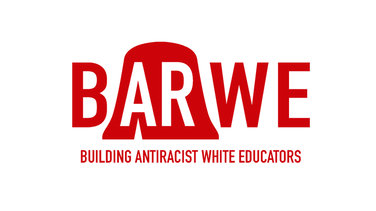Building Antiracist White Educators pushes and equips white educators to continuously address their own unconscious biases and take an active role in fighting white supremacy in our schools, communities, and in ourselves.
What does BARWE do?
As educators, we want to do our jobs well. We want to be fair, we want to promote safe communities, and we want to support all our students in every aspect of their lives.
We believe that through consistent study, reflection, and action, white teachers can address our own unconscious biases and make changes so we can better support the academic, social, and emotional well-being of all students, especially Black and Brown students who are often negatively impacted by white supremacy culture in our schools.
We believe that through consistent study, reflection, and action, white teachers can address our own unconscious biases and make changes so we can better support the academic, social, and emotional well-being of all students, especially Black and Brown students who are often negatively impacted by white supremacy culture in our schools.
